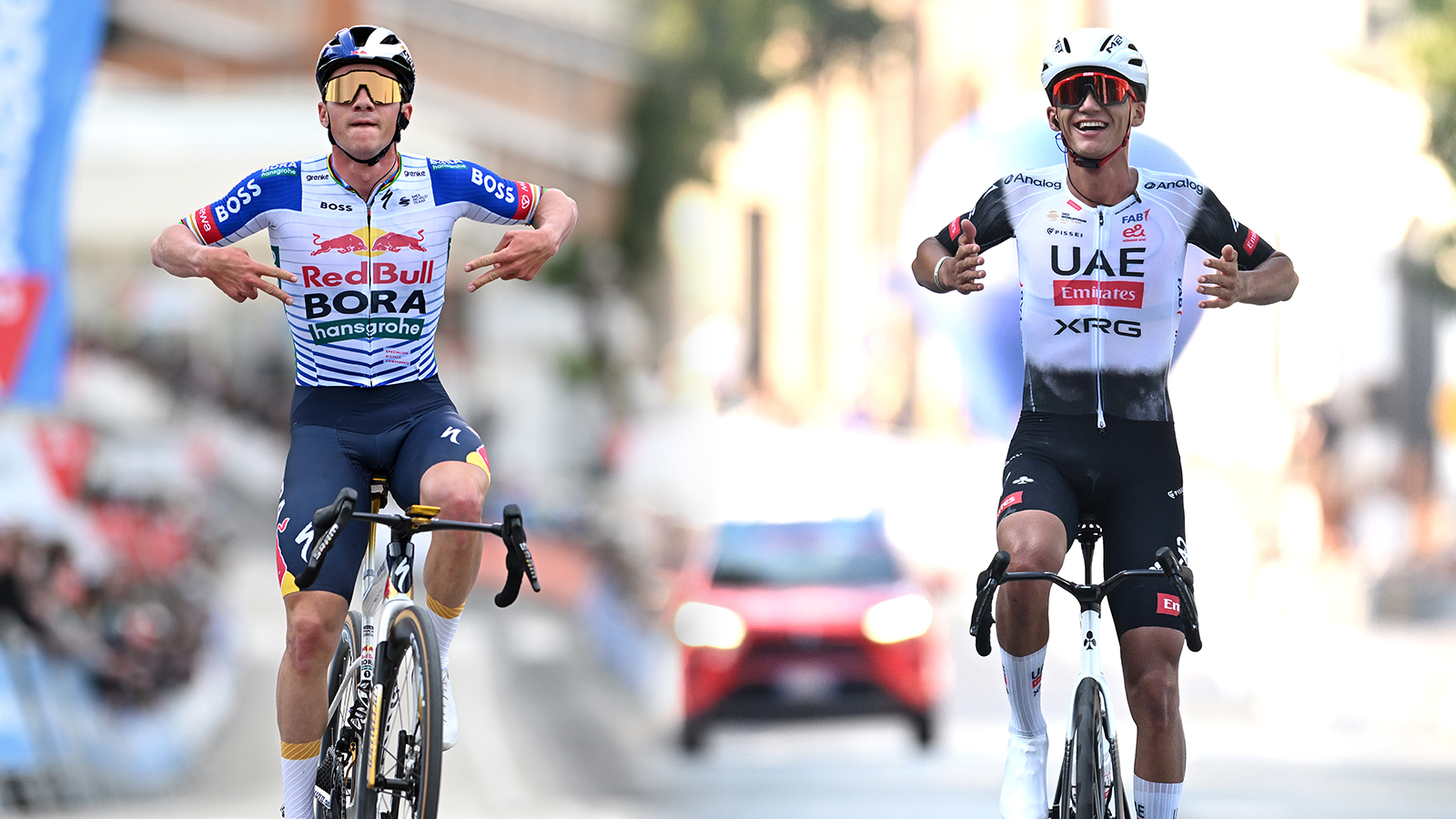Reflections from Rwanda – Eight things we learned at the World Championships
From the development of African cycling to young stars, and from tough courses to unrivalled crowds, we reflect on a week of racing in Kigali
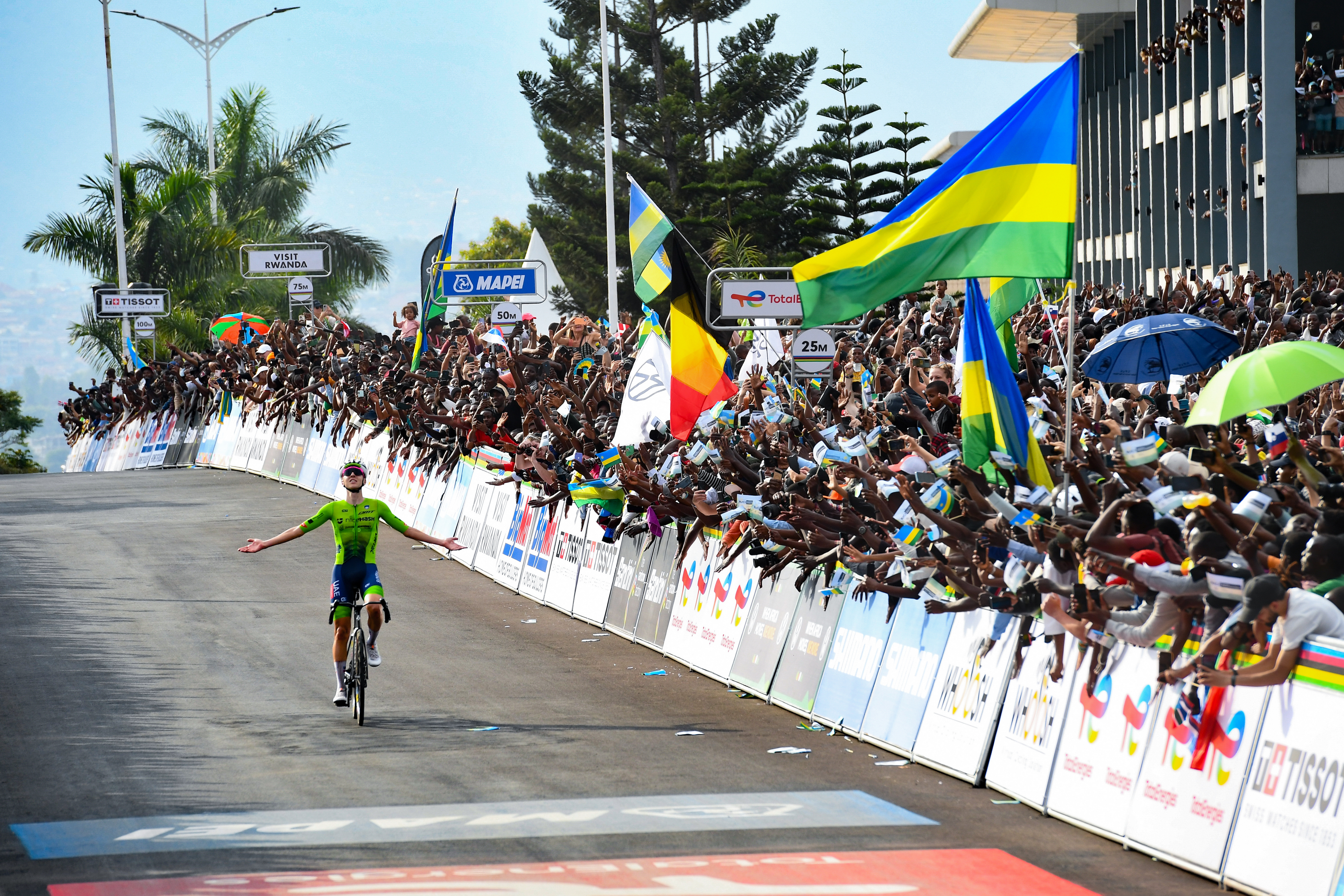
- Longterm development committment pays off in Kigali
- Tough conditions made an already challenging course even tougher
- The future generation is bright
- Junior racing is more serious than ever
- The crowds were unrivalled, the energy unreal
- The women's under-23 standalone events more than proved their worth
- Being the favourite doesn't mean anything – unless you're Tadej Pogačar
- Rwanda Worlds legacy: cycling is for everyone
The latest race content, interviews, features, reviews and expert buying guides, direct to your inbox!
You are now subscribed
Your newsletter sign-up was successful
Sunday marked the culmination of a truly historic and landmark Road World Championships, with the event taking place in Africa for the first time ever as Kigali, Rwanda hosted the week of racing.
After several years of anticipation, including some bumps in the road, the event finally arrived in the Rwandan capital this week and delivered exciting racing, challenging courses, and worthy winners.
On the racing side, we saw the first standalone under-23 women's races, some super high-level age category racing, and elite races that showed off impressive performances and intriguing tactics. The courses, hailed as some of the hardest ever, lived up to that moniker, with attritional races seeing few finishers, and the conditions in Kigali making things even harder.
In the wider context, this Worlds put African cycling in the spotlight, with more teams hailing from Africa than any other continent, and one of the most diverse fields ever. The city of Kigali also came out in full force to enjoy the event, with huge crowds lining the roads. We may be only a day post-event, but the UCI can already start thinking about the legacy of this Worlds, and what is next for African cycling.
Cyclingnews spent the week in Kigali, witnessing the event, talking to riders, and analysing the racing. As the dust settles on the first African Road World Championships, here are our reflections from Rwanda.
Longterm development committment pays off in Kigali
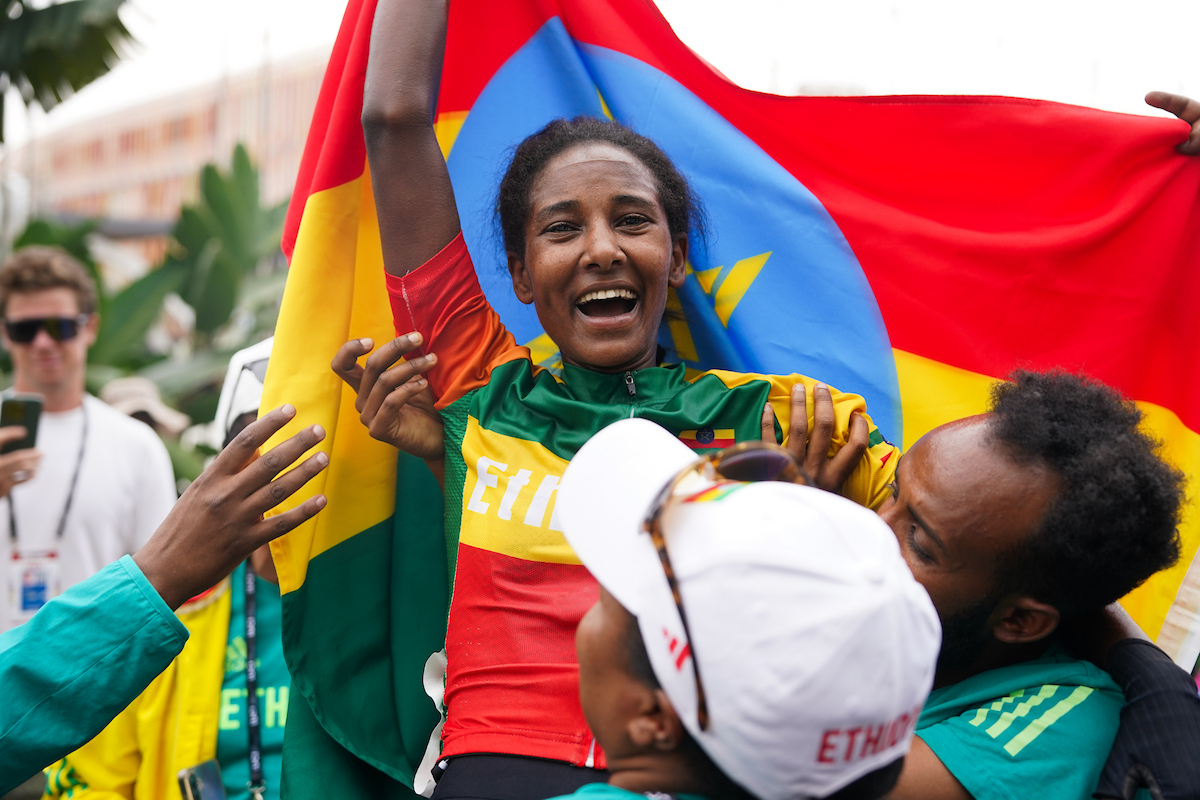
One of the most successful initiatives to emerge from the sport's governing body is its World Cycling Centre (WCC) programme, a two-decade-long commitment to globalising cycling by developing athletes worldwide.
With a home base at its headquarters in Aigle, Switzerland, it has provided opportunities for athletes to learn and excel in the five Olympic disciplines of road, track, BMX Racing, BMX Freestyle, and mountain biking, while also developing cycling both locally and internationally.
The latest race content, interviews, features, reviews and expert buying guides, direct to your inbox!
The talent identification process is carried out in collaboration with the five Continental Confederations. Athletes are spotted by their National Federations for cycling, especially in developing nations, if they have high-level training aptitude. The WCC then offers part and full scholarships, including a full range of equipment, lodging, meals, coaching and an opportunity to compete in top-level races.
In addition to providing training and racing opportunities in Switzerland, satellite education programs have been established worldwide, offering training, coaching, mechanics education, and support.
It's no surprise, then, that more than twenty years on, riders who had the opportunity to grow with the WCC were among the top performers at the Rwanda Worlds, such as elite women's time trial world champion Marlen Reusser (Switzerland) and elite women's road race world champion Magdeleine Vallieres (Canada). One of the most significant performances came from Tsige Kahsay Kiros (Ethiopia), who animated the junior women's road race as a major contender for the rainbow jersey, ultimately finishing seventh and the highest-placed rider from an African national team at these Worlds.
Riders who have come through the WCC programme over the years, and who were also competing in Kigali, include Eritrea's Biniam Girmay and Trinidad and Tobago's Teniel Campbell, both racing on the WorldTour, among others.
The program continues to grow, and the commitment to worldwide development remains strong. A brand-new development program, ahead of the Rwanda World Championships, was introduced in Rwanda: the WCC Regional Development Satellite. This initiative operates out of three locations: Musanze, Bugesera, and Rwamagana. These facilities provide accommodations for athletes and staff, as well as classrooms for theoretical sessions, with a focus on road cycling development and training.
The new satellite location is one of two in Africa, the other is a WCC Continental Satellite in Paarl, about 60 kilometres northeast of Cape Town in South Africa, and there are a total of nine of these around the world, including Anadia (Portugal), Bromont (Canada), Cambridge (New Zealand), Couva (Trinidad and Tobago), Lima (Peru), New Delhi (India), Shanghai (China) and Yeongju (Korea). There is one other Regional Development Satellite in Shuzenji (Japan).
The programme's success at these World Championships is proof that making a solid commitment to development, with a long-term strategy and support, has begun to pay off in the pursuit of making cycling more accessible to everyone. (KF)
Tough conditions made an already challenging course even tougher
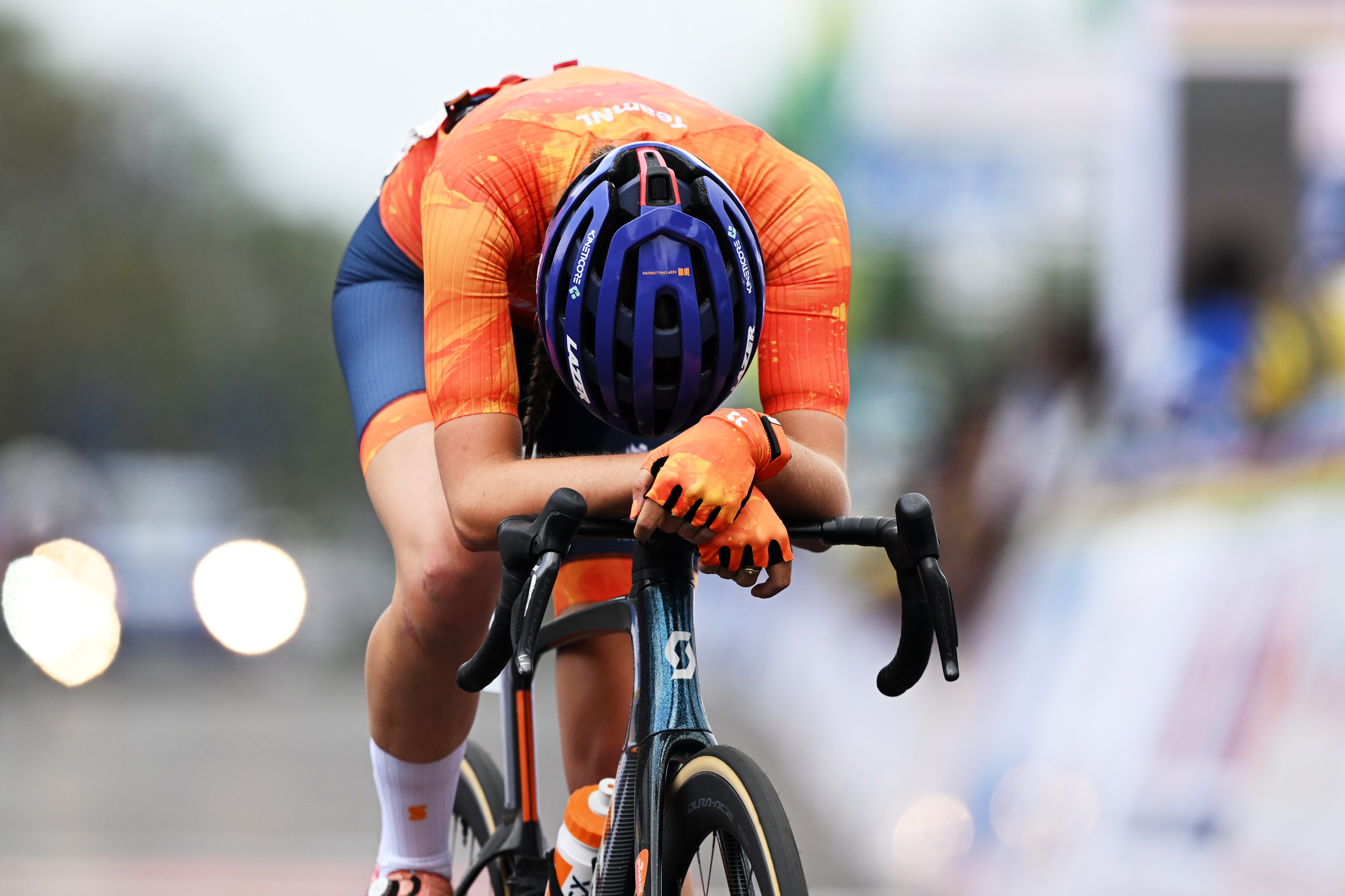
Ever since the courses for this year's World Championships races were announced, we've been talking about how hard they are. Steep climbs, thousands of metres of climbing, and some cobbles thrown in for good measure, too. And they have been really challenging, but speaking to riders this week, it isn't actually the climbs or the cobbles that are the hardest things, but the conditions.
The combination of altitude and air pollution has left riders feeling the pain in their lungs more than their legs, whilst the heat has seen several riders end their race with cramps. Riders have done a lot to try and adapt to these conditions in advance, with contenders even down to the junior levels going on altitude camp and training in simulated heat, but adaptation only makes it easier, not easy. In some races, the difficulty in fact dampened the action with riders hesitant to attack early, or too many times, with so little chance to recover.
For all that the races were undeniably tough, however, the course has also left some things to be desired. After watching 13 races across the week on the same 15km loop (for the most part), the wide, sweeping roads that make up much of the course can become a bit uninspiring, even if that's the norm for Worlds. Adding the extension loop to the women's race, or having the road races start out of the city before joining the circuit, could have mixed things up a bit and shown the cycling world more of Rwanda. (MP)
The future generation is bright
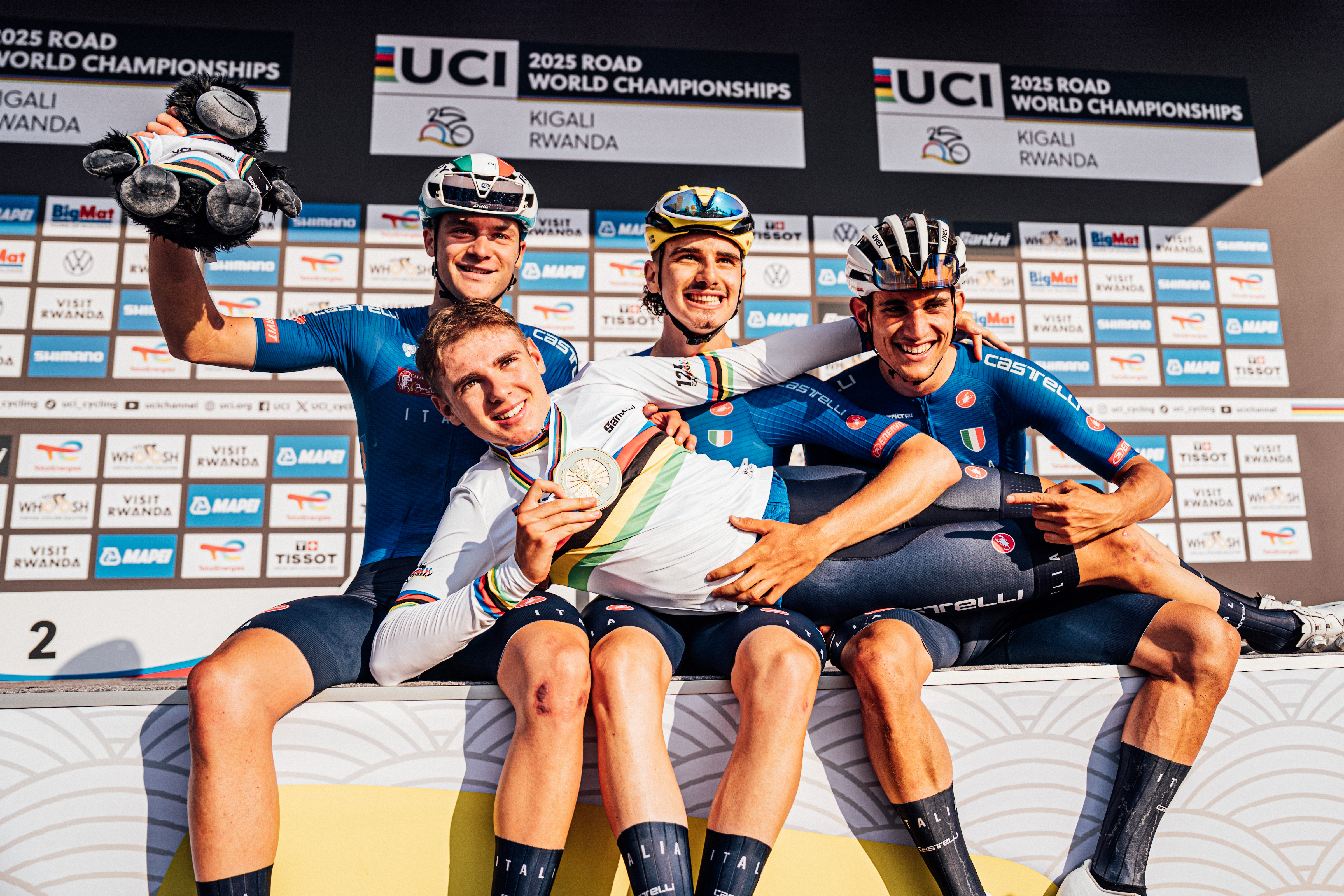
There were many successes across the junior and under-23 women's and men's categories in Kigali, showcasing the up-and-coming talent and the who's who of the future of professional cycling. Many of them were already snapped up by the top teams in the sport.
Standout moments came from Italy's Lorenzo Finn, who celebrated as the world champion for the second consecutive year, swapping out his junior men's road race title with the under-23 men's road race triumph.
He was the youngest winner of the race at 18 (turning 19 in December), his victory marked the first for Italy at these Worlds, a 'special moment' and one that he had prepared for with his trade team Red Bull-Bora-Hasngrohe Rookies.
Spain's Paula Ostiz, 18, surprised herself with a silver medal in the junior women's individual time trial, but it was no surprise to see her go on to win the world title in the junior women's road race.
She is considered one of the most talented young riders in Spanish racing, and having signed with Movistar through 2028, we can expect to see much more from her while racing on the WorldTour.
Great Britain's Harry Hudson, 18, produced a stunning solo victory and made history as the first-ever British rider to win the junior men's road race at the Road World Championships.
While the nation has produced some of the top male cyclists in the world for generations, Geraint Thomas and Tom Pidcock, for example, it had not yet managed to reach the top step of the podium at the junior men's road race at the World Championships. They fared far better in the junior men's individual time trial, with Pidcock and Josh Tarling winning junior world titles in the discipline.
On the women's side, Great Britain has had more success at Worlds over the years with Cat Ferguson, Zoe Bäckstedt, Lucy van der Haar, and Nicole Cooke securing junior women's road race world titles, while Ferguson, Bäckstedt, Cooke and Elinor Barker also won world titles in the junior women's time trial.
In Kigali, Bäckstedt continued her World Championship success by winning the first-ever standalone under-23 women's time trial event, adding to her collection of career cross-discipline world titles. She will continue to have a bright future with Canyon-SRAM on the WorldTour.
There were many other winning performances among the junior and under-23 categories, including Célia Gery (France), Michiel Mouris and Megan Arens (both from the Netherlands), and Jakob Söderqvist (Sweden), who are all among the riders to watch as the future of world-class racing. (KF)
Junior racing is more serious than ever
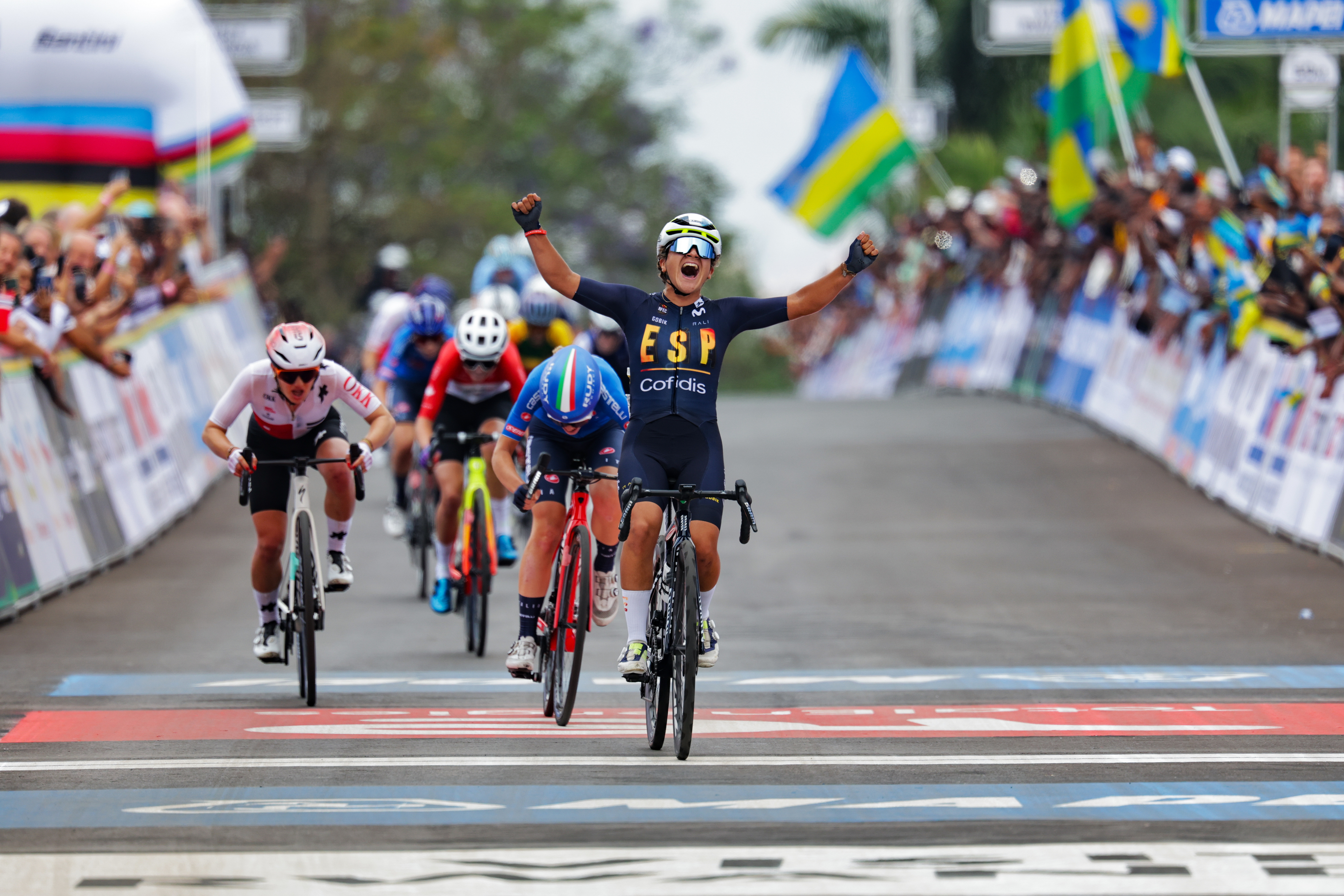
Junior racing has been becoming more and more serious and important for several years now, with riders increasingly being snapped up by professional teams whilst they are still in the under-19 category, but this World Championships really hammered home that point. Listening to the junior winners and medallists talk about their preparations, it was astounding to hear how many had been to altitude camp before Kigali, or had been sleeping in altitude tents provided by their federations. This is preparation befitting of a professional, being done by 16 and 17-year-olds.
Junior racing used to be the very beginning of a rider's racing career, with the under-23 category the time when they'd then start thinking about getting a professional contract, but now, many talented riders are already on the WorldTour pathway once they graduate from the juniors. Paula Ostiz, Harry Hudson and Michiel Mouris are all on WorldTour or WorldTour development teams next year – Megan Arens is the only 2025 junior world champ whose next step isn't yet confirmed. This shift is also exemplified by the announcement during the worlds that the Under-23 Nations' Cup will end this year. Development and recruitment really happens at junior level now – under-23 racing outside of trade teams is really just not needed anymore, because riders being 22 without a contract yet is becoming a thing of the past. (MP)
The crowds were unrivalled, the energy unreal
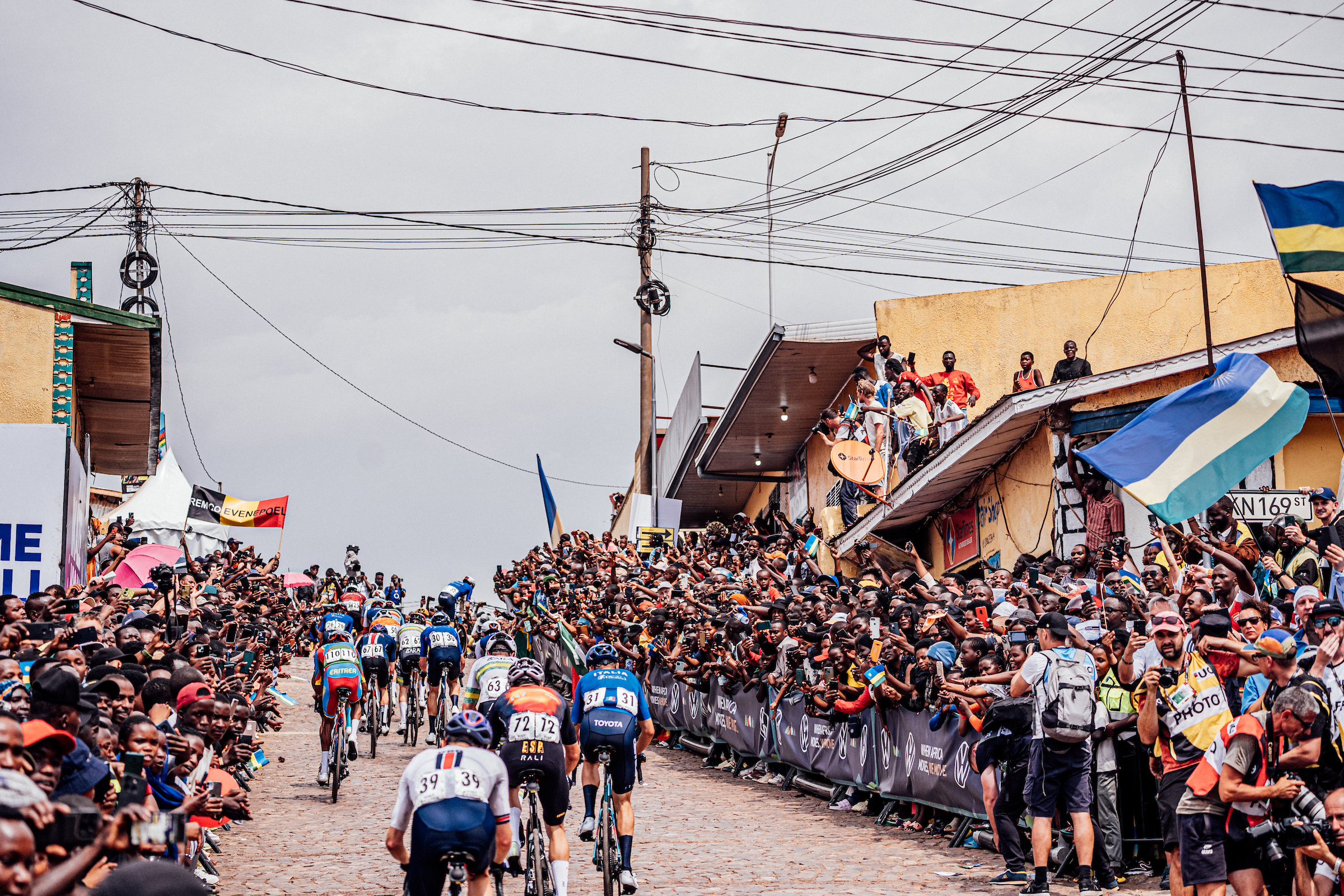
"I've never seen anything like it," were the words of Ben Healy after winning the bronze medal in the elite men's road race on Sunday, referring to the throngs of cheering fans lining every centimetre of road along the 15km city circuits and larger loop over Mont Kigali, located on the outskirts of town.
For all eight days of racing, across 13 events, the enthusiasm among the fans started high, continued to grow, and then the roar and depth of the crowds reached a crescendo on the roads leading up to and over the top of the 5.6km mid-race ascent.
Anyone who had already attended the nation's marquee Tour du Rwanda would have experienced firsthand how popular bike racing is in Kigali and nationwide. The vibe was electric, the people enthusiastic and welcoming to the international peloton at this historic event.
The spectators watching this edition of the World Championships made what was already a historic moment even more memorable; a true celebration of cycling at the highest level and a part of rewriting history. (KF)
The women's under-23 standalone events more than proved their worth
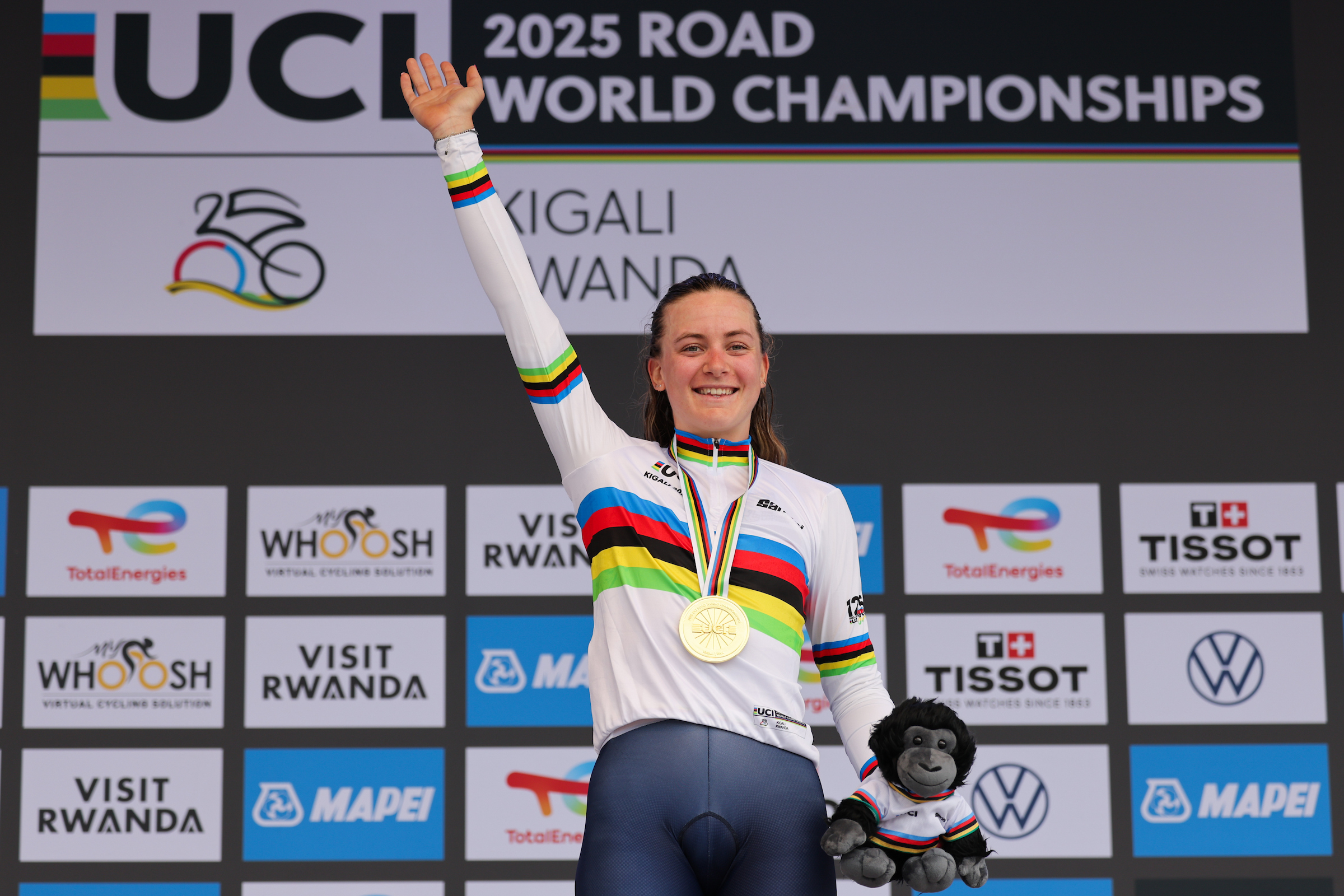
After many years of waiting, and three years of unsatisfying 'races within races', Kigali 2025 finally marked the arrival of the first standalone events for the women's under-23 category, and they did not disappoint. Both races did exactly what they were designed to do: allowed riders to shine in their own age category, and achieve results they wouldn't in the elite category. Finally having a shorter course for the under-23 time trial allowed Zoe Bäckstedt to show off her talents and win a world title again. As for the road race, it was one of the most exciting and dynamic events of the week, with France taking control of the race to deliver Célia Gery to a historic title.
It was WorldTour riders who won both categories, but they weren't riders who have been winning at a high level for a long time, so it certainly didn't feel like bonus or easy wins for riders who are already pro. It felt like watching well-matched riders go up against each other in exciting events, and more riders having a chance at success – what's not to like?
Riders did speak after the race about a relative lack of depth in the category, but that's to be expected in the first year, and at a championships where some nations only sent reduced teams. The depth will come, and these events – which were already really competitive and exciting – will only get better. I only wish we could have had them sooner. (MP)
Being the favourite doesn't mean anything – unless you're Tadej Pogačar
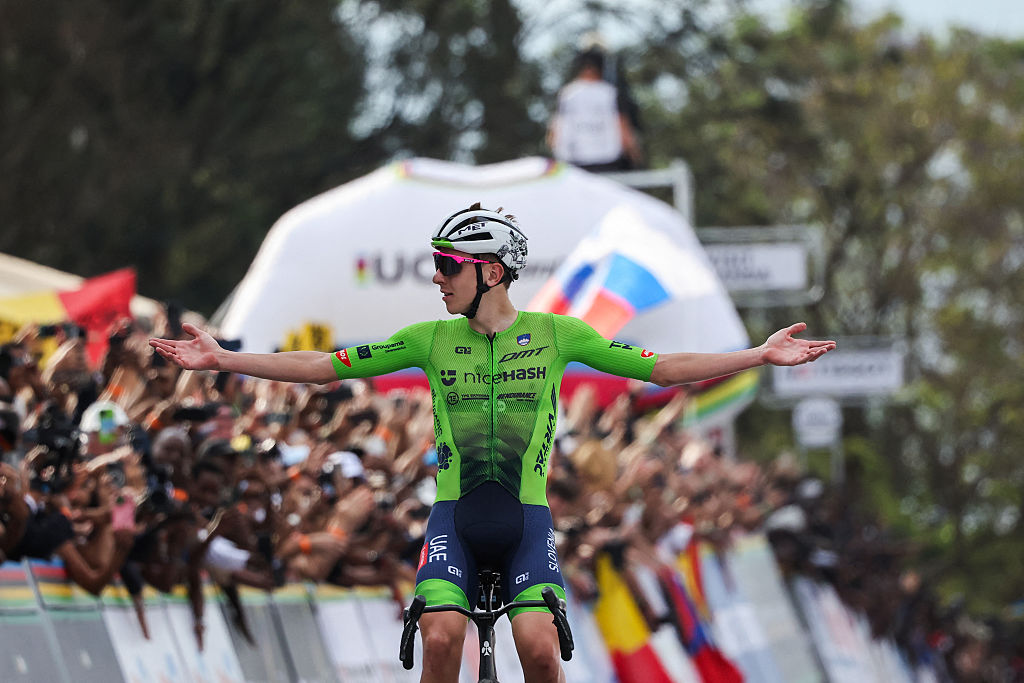
Many of the races in Kigali, most notably the elite women's road race, showed us that even if you start the race as a clear favourite, you're not guaranteed anything. Names like Cat Ferguson, Jarno Widar and Erin Boothman all faltered in their respective races, but it couldn't have been any clearer than in the women's elite race.
The big group of favourites had all been talked up, were all there at the key moment, and in the end were foiled by outsiders. They said they weren't underestimating the leading group, but there must have been a touch of that, thinking that their group of big names would easily be able to close the gap. But they couldn't, and the crop of stars that started the day at the top of the list of contenders didn't get to battle for anything.
Remco Evenepoel is probably feeling a bit similar on Monday, as he went into the men's road race as a top contender, and on great form after his time trial victory, but that status can't protect you from bad luck. Instead of getting to go for a win, a mechanical at a bad moment saw the Belgian struggling with his position as Pogačar attacked, and he never quite came back from it, settling for second.
The exception to this rule is, of course, Tadej Pogačar. The Slovenian somehow has the ability to start multiple races as the top favourite, and multiple times he will deliver. He never seems to be affected by the pressure or expectations, he rarely befalls any bad luck, and he never gets tangled up in any tactical games. He knows he's the strongest, he knows he's the best, and he delivers. (MP)
Rwanda Worlds legacy: cycling is for everyone
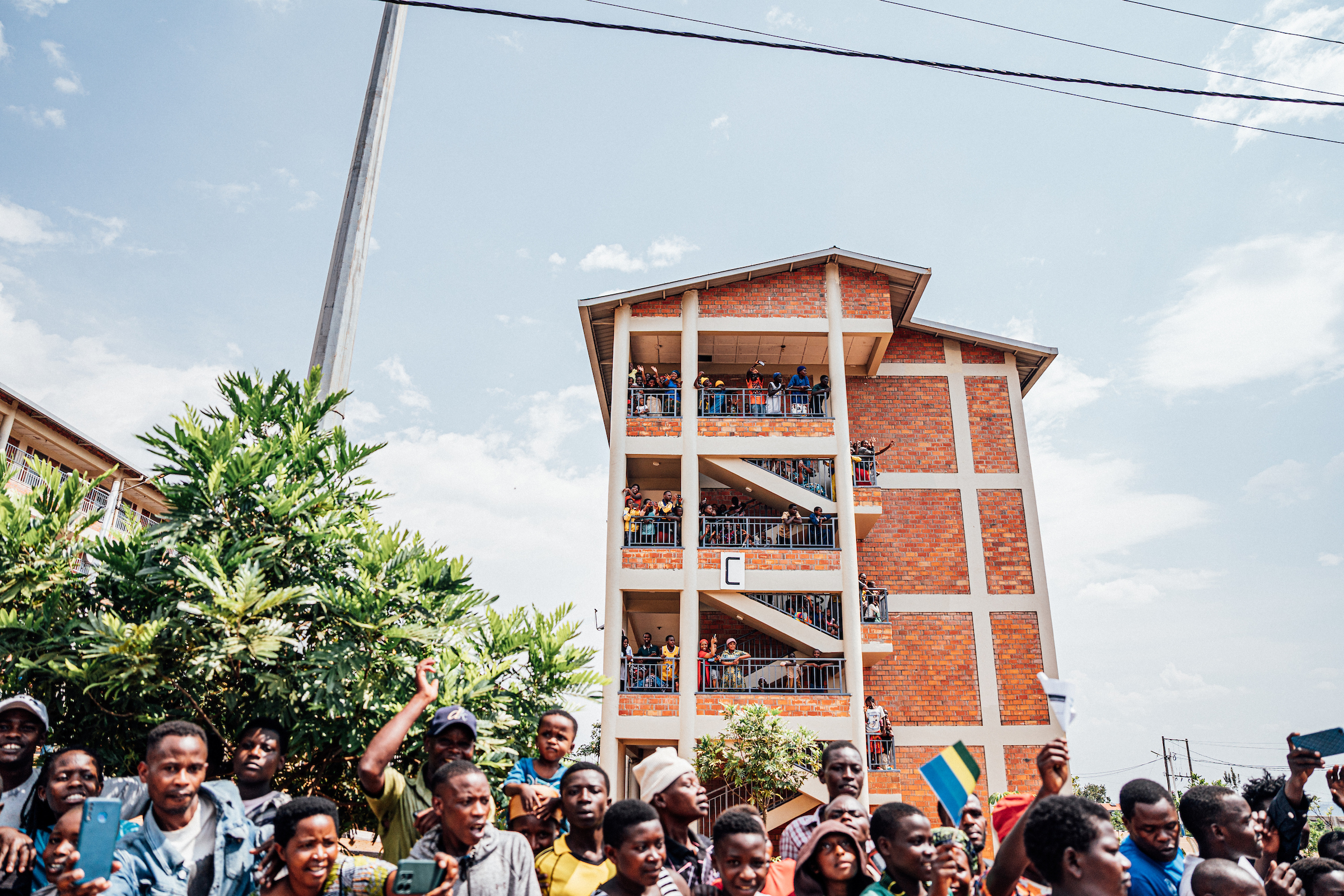
The expectations were always going to be high for this landmark event, after all, it has been more than a century since the inaugural UCI Road World Championships, with the majority of them having been held across Europe and, on rare occasions, reaching North America, South America, Asia, and Oceania.
However, this edition of road cycling's centrepiece event finally reached Africa, marking a historic moment that will undoubtedly be remembered as one of the first steps toward the long-time promise of a truly global sport for everyone.
There is no disputing that the organisation of the Rwanda Worlds were executed to near perfection, setting a new benchmark for how a major international event can manage sporting logistics, safety, spectator experience, and the participation of 108 nations around the world, 38 from Africa, across 13 events for eight days of racing in the capital of Kigali.
One of the most significant legacies is something that can't be measured, and that is allowing a nation to showcase its country to the world; its athletes, cities, landscapes, and culture. There will be hope that hosting an event as big as the World Championships will help bring more racing and development opportunities, not only to Rwanda, but to many other nations across Africa, and to inspire the next generation.
Rwanda's human rights record remains a concern and is under the scrutiny of international advocacy groups, an important point of discussion at these Worlds. The UCI cannot continue to evade questions about its potential contribution to sportswashing, not just in Rwanda but in several other nations with poor human rights records, and where it draws the line between human rights and its own return on investment. (KF)
Subscribe to Cyclingnews to unlock unlimited access to our coverage from the first-ever UCI Road World Championships on African soil. Our team of journalists brought you all the major storylines, in-depth analysis, and more directly from the action in Rwanda as the most recent rainbow jerseys were decided. Find out more.

Kirsten Frattini has been the Editor of Cyclingnews since December 2025, overseeing editorial operations and output across the brand and delivering quality, engaging content.
She manages global budgets, racing & events, production scheduling, and contributor commissions, collaborating across content sections and teams in the UK, Europe, North America, and Australia to ensure audience and subscription growth across the brand.
Kirsten has a background in Kinesiology and Health Science. She has been involved in cycling from the community and grassroots level to professional cycling's biggest races, reporting on the WorldTour, Spring Classics, Tours de France, World Championships and Olympic Games.
You must confirm your public display name before commenting
Please logout and then login again, you will then be prompted to enter your display name.
